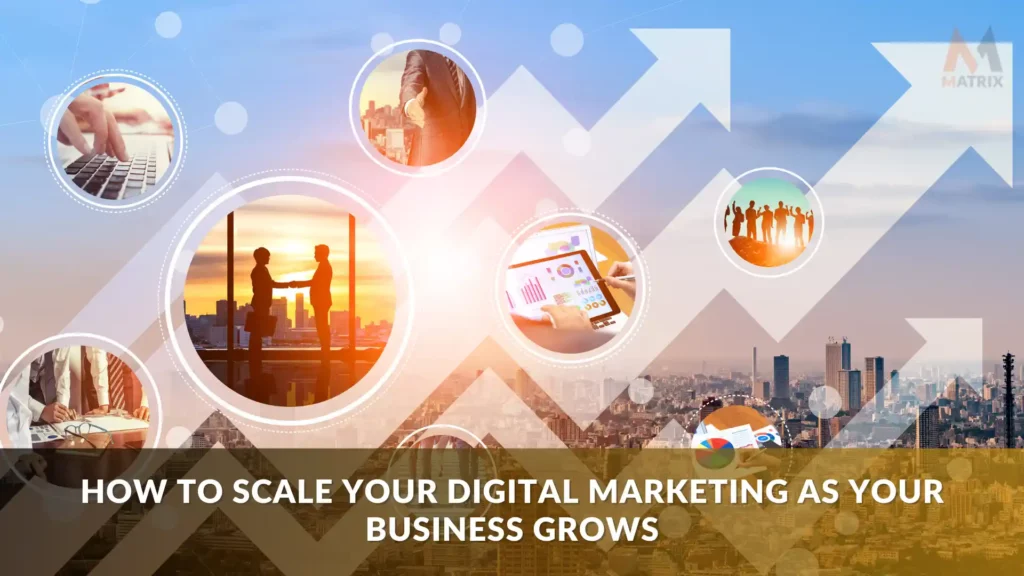How To Scale Your Digital Marketing as Your Business Grows
Learn How to Scale Your Digital Marketing as Your Business Grows.
Are you a marketer trying to grow your business but intimidated by the complexity of digital marketing? You’re not alone.
Today, businesses must implement progressive strategies aligning their growth in reach and sales with technological innovation.
Yet, focusing on how to scale your digital marketing as your enterprise grows can take time and effort, even for the most experienced marketers.
That said, navigating these complicated waters effectively is vital for any savvy entrepreneur seeking lasting success in their endeavors – it’s just a matter of adhering to best practices, researching the right channels, and developing goal-oriented strategies tailored specifically to meet your needs.
The rapid advancement of technology and the growing reliance on the Internet have revolutionized the way people communicate, shop, and consume information. As a result, businesses have had to adapt their marketing strategies to meet the evolving needs of their customers.
Digital marketing has become indispensable for businesses to reach their target audience, engage with customers, and drive sales.
We help inbound marketing agencies learn how to scale their operations. They want to see help to grow a digital marketing agency like Matrix Marketing Group. And we seldom turn down an offer to help.
Before discussing scaling your digital marketing strategies in depth, let’s examine what digital marketing agencies often overlook. Matrix Marketing Group has been working with AI technology, including Watson and OpenAI, since 2015. PPC Digital Benchmarks by Industry
So here goes…
How Has AI Impacted Digital Marketing Agencies And Inbound Marketing Agencies?
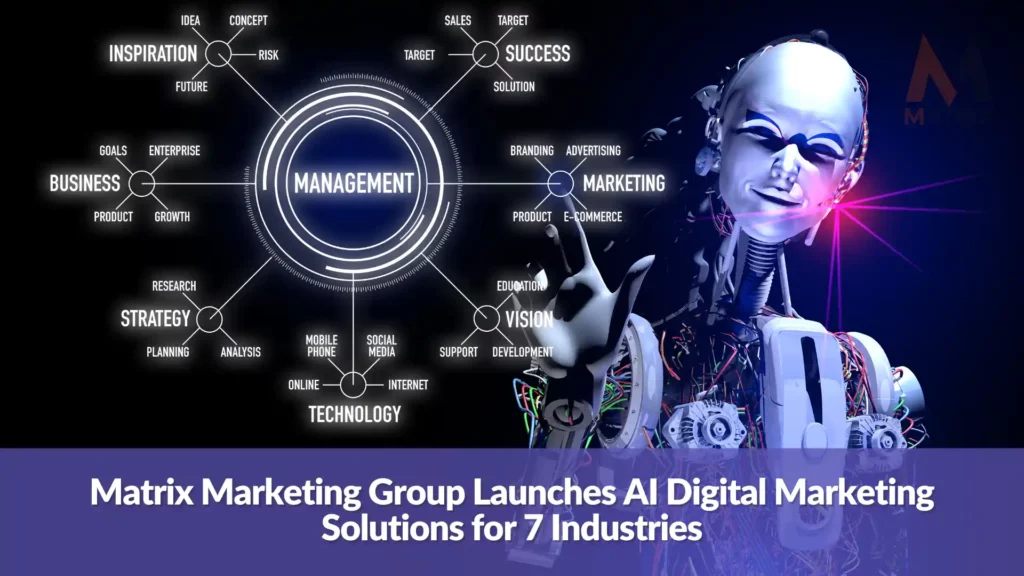
Artificial intelligence (AI) has significantly transformed various industries, and digital marketing is no exception.
AI digital marketing has been in the following digital marketing firms and services:
- Digital marketing agency
- Social media management
- Content marketing services
- Search engine optimization (SEO)
- Pay-per-click advertising (PPC)
- Customer journey path mapping
- Predictive analytics
- Productivity increases
- Omnichannel management
As AI advances, digital marketing agencies leverage their capabilities to improve efficiency, make data-driven decisions, and deliver better client results.
I. Enhanced Data Analysis and Insights
AI-powered tools and platforms enable digital marketing agencies to collect, analyze, and interpret vast amounts of data.
This enables them to gain deeper insights into customer behavior, preferences, and trends, ultimately leading to more informed decision-making and more targeted marketing campaigns.
Key benefits:
- Improved audience segmentation and targeting
- Identification of customer pain points and preferences
- Real-time analysis and optimization of campaigns
II. Personalization and Dynamic Content
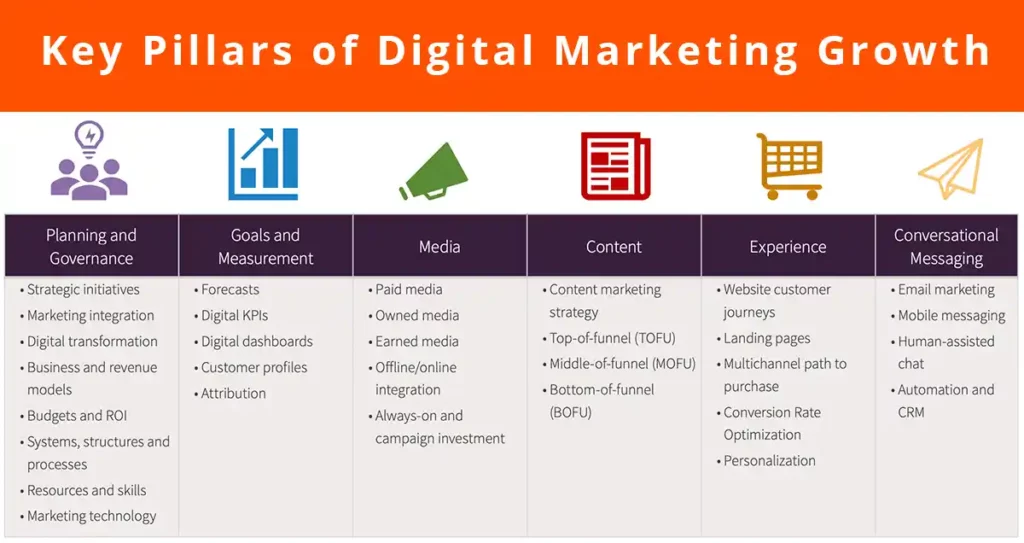
AI has enabled digital marketing agencies to deliver highly personalized content to their target audience.
By analyzing customer data and using algorithms to predict preferences, AI-driven platforms can dynamically tailor content and offer to individual users, leading to higher engagement and conversion rates.
Key benefits:
- Increased relevance and engagement
- Improved customer experience
- Higher conversion rates and ROI
III. Automation and Efficiency
AI-powered marketing automation tools have revolutionized how digital marketing agencies manage campaigns and tasks.
By automating repetitive tasks, such as email marketing, social media posting, and ad bidding, AI enables agencies to save time, reduce manual labor, and enhance overall efficiency.
Key benefits:
- Time and resource savings
- Enhanced campaign management and performance
- Consistent and timely execution of tasks
IV. Chatbots and Customer Support
AI-driven chatbots have emerged as a powerful tool for digital marketing agencies to provide seamless customer support and enhance user experience.
Chatbots provide instant responses to customer inquiries, enabling agencies to manage customer interactions effectively while freeing up resources for other tasks.
Key benefits:
- Improved customer satisfaction and loyalty
- Increased lead generation and conversions
- Efficient handling of customer inquiries
V. AI in Content Creation and Optimization
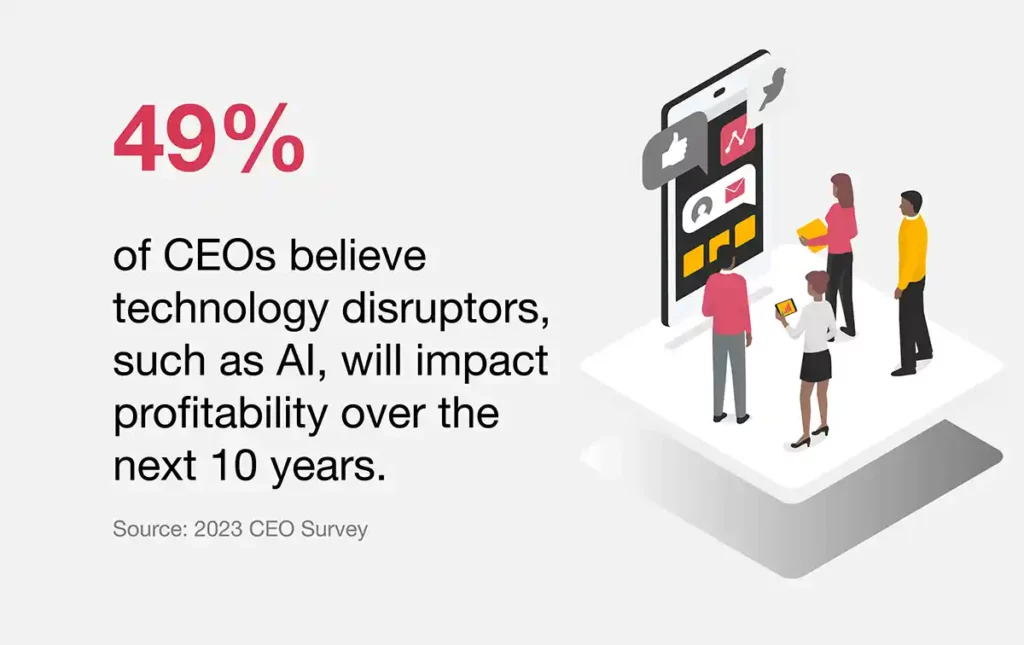
We think it’s sooner. It’s happening now.
AI-powered tools have made it easier for digital marketing agencies to create and optimize content more effectively.
From generating headlines to suggesting relevant keywords and phrases, AI can help agencies streamline the content creation process, enhance search engine optimization (SEO), and improve content performance.
Key benefits:
- Faster and more efficient content creation
- Improved content quality and SEO
- Data-driven content optimization
Artificial intelligence (AI) has significantly impacted digital marketing agencies by introducing new capabilities and opportunities to enhance their services.
By embracing AI-driven tools and techniques, agencies can enhance data analysis, personalization, automation, customer support, and content creation, ultimately delivering better results for their clients.
As AI advances, digital marketing agencies that adapt and harness its potential will remain at the forefront of the industry, providing a competitive edge.
This article will discuss the importance of digital marketing in today’s business landscape and why it should be a priority for every organization. Top 7 Challenges Facing SEO Managers in 2025
1. Expanding Reach and Accessibility
Digital marketing allows businesses to reach a wider audience than traditional marketing methods.
With billions of internet users worldwide, organizations can now connect with potential customers across the globe, overcoming geographical barriers.
By leveraging digital channels such as websites, social media platforms, and email marketing, businesses can quickly and efficiently expand their reach, increasing brand visibility and growth opportunities.
2. Cost-Effective Marketing
One of the most significant advantages of digital marketing is its cost-effectiveness. Compared to traditional marketing methods such as print, TV, or radio advertising, digital marketing often requires a lower budget while still delivering impressive results.
For example, small businesses can utilize social media and content marketing to effectively reach their target audience without incurring the high costs associated with expensive ad campaigns.
Additionally, digital marketing enables better tracking and measurement of ROI, allowing businesses to optimize their strategies and allocate resources more effectively.
3. Improved Targeting and Personalization
Digital marketing enables businesses to target their audience more accurately than traditional marketing methods. See what happens to Bud Light when you do not understand your core audience? A $6M mistake.
By leveraging data analytics and customer insights, organizations can create highly personalized marketing campaigns that cater to their customers’ specific needs and preferences.
This level of customization enhances customer engagement, fosters brand loyalty, and increases conversion rates.
Furthermore, digital marketing tools such as social media advertising and pay-per-click campaigns allow for precise targeting based on demographics, interests, and online behavior, ensuring businesses reach the right audience at the right time.
4. Enhanced Customer Engagement and Interaction
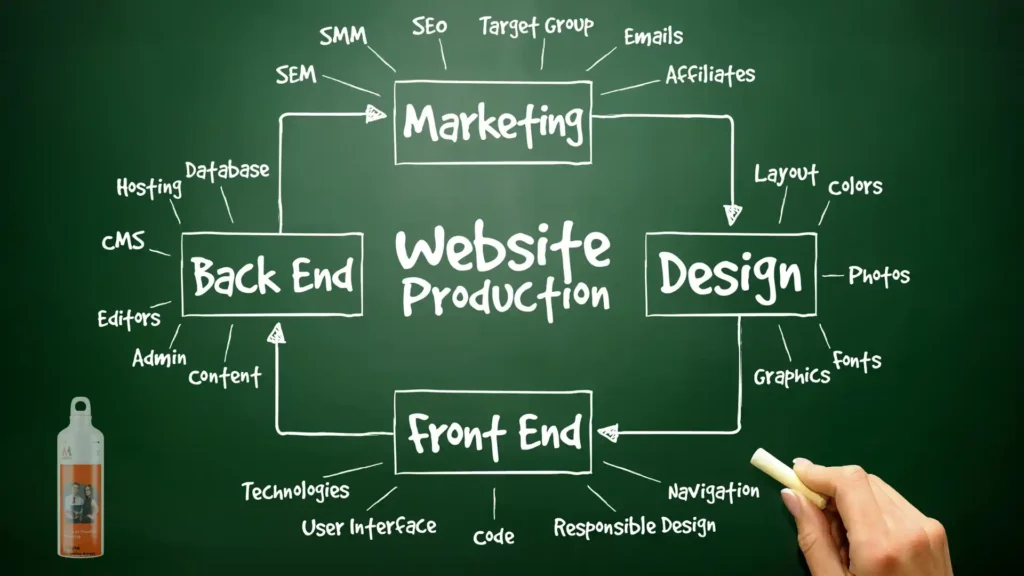
The interactive nature of digital marketing enables businesses to engage with their customers in real-time, fostering strong relationships and building brand loyalty.
Businesses can quickly respond to customer inquiries, address concerns, and gather feedback through social media platforms.
This two-way communication enhances the customer experience and enables businesses to gain valuable insights into their customers’ needs and preferences, informing future marketing strategies and product development.
5. Measurable Results

Digital marketing allows businesses to track and analyze their campaigns’ performance easily.
By utilizing analytics tools and tracking key metrics, such as click-through rates, conversion rates, and engagement levels, organizations can make informed, data-driven decisions to optimize their marketing strategies.
This level of insight is challenging to attain with traditional marketing methods, making digital marketing a valuable tool for driving continuous improvement and growth.
In today’s increasingly connected and digital world, businesses must prioritize digital marketing to remain competitive and meet the changing needs of their customers.
The importance of digital marketing lies in its ability to expand reach, enhance targeting, improve customer engagement, and deliver measurable results, all while being cost-effective.
By embracing digital marketing, businesses can unlock new growth opportunities and build strong customer relationships, ensuring long-term success in the modern business landscape.
This blog post will provide critical insight into what you need to know about transforming any small or medium-sized business into something larger, without the stress or risk of failing initiatives!
Assess Your Current Digital Marketing Strategy
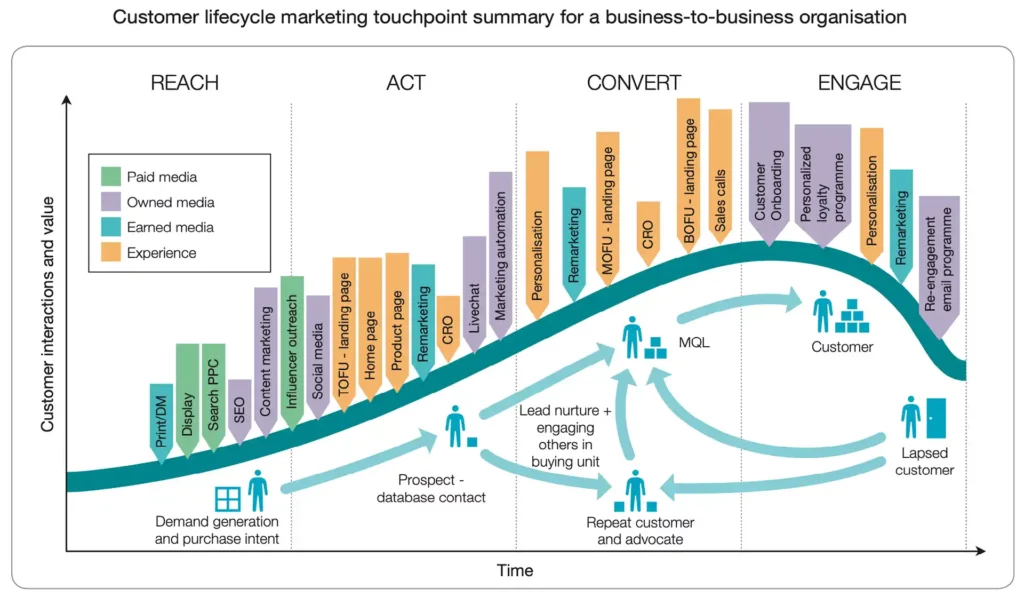
In today’s digital age, having a strong online presence that effectively promotes your brand, engages with your audience, and drives conversions is crucial.
However, more than having a website or social media account is needed to reduce the noise. The social digital marketing at scale requires listening. Listening a lot.
That’s why it’s essential to continually assess and refine your digital marketing strategy to ensure it remains aligned with your business goals and the ever-evolving digital landscape. The competition is fierce, and those who are confident, authoritative, and urgent in their approach will succeed.
Take the time to evaluate your current digital marketing efforts and make the necessary adjustments to stay ahead of the competition.
Analyze Your Competitors’ Digital Marketing Strategies
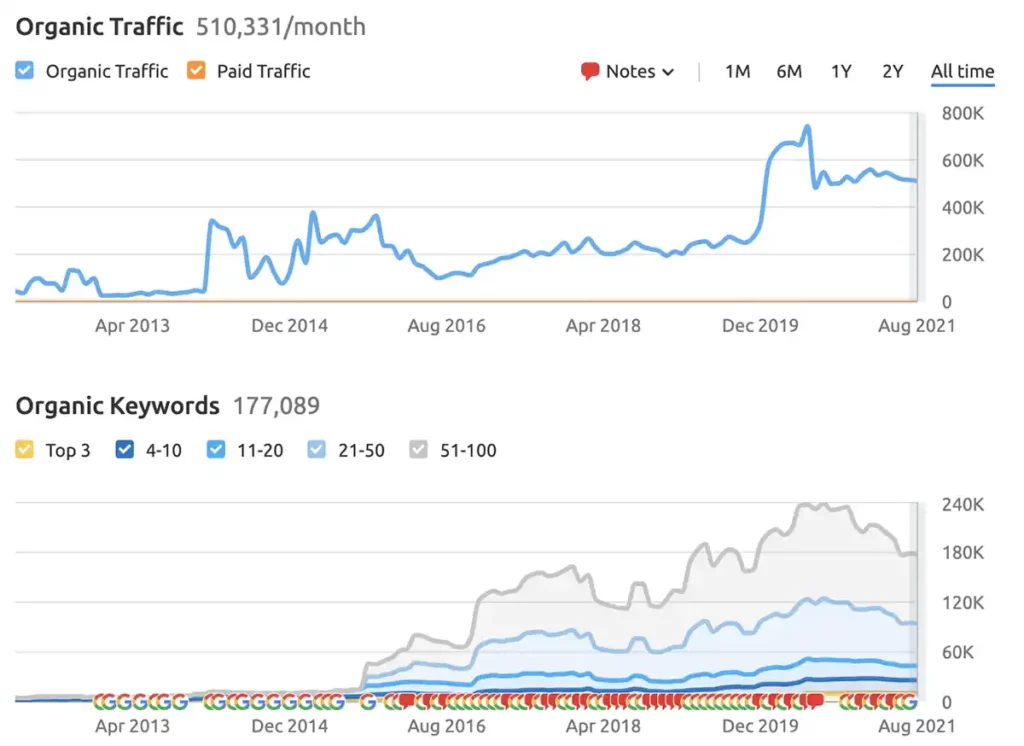
To thrive in today’s digital age, you must stay one step ahead of your competitors. Analyzing their digital marketing strategies is crucial to gaining a competitive edge.
You can craft a unique approach that sets you apart by identifying your strengths and weaknesses. Through thorough analysis, you will gain valuable insights into what is working and what is not.
How to Analyze Your Competitors’ Digital Footprint
Analyzing your competitors’ digital footprint is crucial for understanding their online presence, strategies, and tactics.
You can identify gaps and opportunities to refine your digital marketing efforts by evaluating their performance.
Step-by-step guide on how to analyze your competitors’ digital footprint effectively.
I. Identify Your Competitors
Before diving into the analysis, it is essential to identify your primary competitors. These may include direct competitors offering similar products or services, as well as indirect competitors targeting the same audience. Make a list of your top competitors to focus your analysis.
II. Examine Their Websites
Your competitors’ websites can reveal a wealth of information about their strategies and online presence. Evaluate the following aspects:
- Design and user experience (UX)
- Content and messaging
- Site structure and navigation
- Calls-to-action (CTAs) and conversion paths
- Mobile responsiveness and site speed
- On-page SEO elements (title tags, meta descriptions, header tags, etc.)
III. Analyze Their Content Strategy
Understanding your competitors’ content strategies can help you identify potential gaps in your approach. Examine the following:
- Types of content (blog posts, videos, infographics, podcasts, etc.)
- Content topics and themes
- Frequency and consistency of content publishing
- Engagement metrics (shares, comments, likes)
- Content distribution channels
IV. Assess Their Social Media Presence
Social media platforms provide valuable insights into your competitors’ audience engagement and brand messaging. Analyze the following aspects:
- Platforms used and presence on each
- Posting frequency and consistency
- Type of content shared
- Engagement metrics (likes, comments, shares, retweets)
- Follower growth and audience demographics
V. Evaluate Their SEO Performance
Search engine optimization (SEO) plays a significant role in driving organic traffic.
Analyze your competitors’ SEO performance by looking at:
- Organic keywords and rankings
- Domain authority and backlink profile
- Internal and external linking strategies
- Keyword gaps and opportunities
- Technical SEO factors (site speed, mobile-friendliness, schema markup)
VI. Review Their Paid Advertising Efforts
Examine your competitors’ paid advertising strategies to gain insight into their approach to targeting and driving conversions. Focus on:
- Platforms used (Google Ads, Facebook Ads, etc.)
- d creatives and messaging
- Targeting strategies and audience demographics
- Estimated ad spend and budget allocation.
VII. Analyze Their Email Marketing
If possible, subscribe to your competitors’ email newsletters to gain insights into their marketing strategies.
Evaluate
- A. Frequency and consistency of email campaigns
- B. Subject lines and preview text
- C. Email design, layout, and content
- D. CTAs and conversion paths
- E. Personalization and segmentation tactics
VIII. Use Competitive Analysis Tools
Several tools can help you gather and analyze data about your competitors’ digital footprint. Some popular tools include:
- A. SEMrush and Ahrefs (SEO and keyword analysis)
- B. SimilarWeb (traffic sources and engagement metrics)
- C. BuzzSumo (content and social media analysis)
- D. SpyFu (paid advertising insights)
Analyzing your competitors’ digital footprint can provide valuable insights to refine your digital marketing strategy.
By examining their websites, content, social media, SEO, paid advertising, and email marketing, you can identify gaps, opportunities, and best practices to implement in your efforts. Regularly monitoring your
This knowledge helps you adjust your approach and stay ahead of the competition. The time to act is now.
Be sure to analyze your competitors’ strategies before it’s too late. Doing so will create a foundation for your digital marketing success.
Establish Clear Objectives and Build an Action Plan
In today’s fast-paced world, it is essential to establish clear objectives and develop an action plan to achieve your goals.
Success will always seem out of reach without a plan, no matter how hard you try. That’s why it’s crucial to take the time to define what you want to achieve and how you will reach your destination.
With a well-structured plan, you’ll have a roadmap to guide you toward your targets and the motivation to keep moving forward. Don’t allow the fear of failure or uncertainty to hold you back.
Instead, take the necessary steps to establish your objectives, create a solid action plan, and work tirelessly to accomplish your dreams today. The sooner you start, the sooner you’ll reap the rewards of your hard work and dedication.
Develop a Scalable Content Strategy
In today’s digital age, content is king. With the abundance of online information, it is crucial to have a strong and scalable content strategy in place.
Creating valuable content that resonates with your target audience can drive traffic, increase engagement, and ultimately help drive business growth. But developing a scalable content strategy is a challenging feat. It requires careful planning, execution, and optimization.
With competition increasing daily, businesses must prioritize investing in an adaptable content strategy that can scale with their growth. By doing so, they can stay ahead of the game and effectively reach their intended audience.
Enhance Search Engine Optimization (SEO)
In today’s digital age, having a strong online presence is crucial for any business to succeed. That’s where SEO comes in – it’s the key to getting your website to rank higher in search engine results pages and attract more visitors.
However, with numerous websites competing for attention, it can be challenging to stand out. That’s why it’s more important than ever to enhance your SEO strategy and stay ahead of the competition. Utilizing the latest techniques and tools can enhance your website’s ranking, increase your reach to potential customers, and maximize your success.
If you’re ready to take your SEO game to the next level, don’t wait – the time to act is now!
Expand Social Media Presence
Social media has revolutionized the way we communicate with each other. Whether it is connecting with long-lost friends or following your favorite brands, social media has become an integral part of our lives.
It is no longer just about being present on social platforms, but also about expanding your reach and engaging with your audience. Expanding your social media presence is crucial, as numerous potential customers are available on various platforms. You can reach a broader audience and increase brand awareness by doing so.
An expanded social media presence can help you connect with your customers and build a strong online community. Embrace the power of social media and unlock new opportunities for your brand.
Automate Your Social Media Posts and Scheduling
In today’s fast-paced world, social media has become a powerful tool for businesses to connect with their target audience. But let’s face it, constantly staying active on social media can be daunting.
Automating your social media posts and scheduling is the perfect solution to this problem. By automating your posts, you can ensure that your content is being shared at the optimal time when most of your audience is online.
Automation also frees up valuable time, allowing you to focus on other business areas. Keep your social media accounts from falling behind. Take control of your online presence and automate your posts and scheduling today!
Optimize Email Marketing
Email marketing is more important than ever in today’s fast-paced digital world. With the right strategy, your emails can capture the attention of your target audience and drive them to take action.
To optimize your email marketing efforts, you must be confident and authoritative in your messaging. Each email should have a clear and urgent call to action: sign up for a newsletter, visit a website, or purchase.
By sharpening your email marketing skills and creating compelling content, you can establish your brand as a thought leader and boost your bottom line. Don’t wait – start optimizing your email marketing strategy today.
How to Increase Your Engagement With Automated Email Marketing
In digital marketing, automated email campaigns can be a game-changer. By utilizing modern technology, businesses can craft messages that are both personalized and timely, all while saving precious time and resources.
But simply launching an email automation system isn’t enough to guarantee success. To truly see results, one must actively engage with their audience and continually seek to optimize and improve their campaigns.
With a confident and authoritative voice, let’s explore some proven tactics for increasing engagement with automated email marketing. Because there’s no time to waste — the clock is ticking, and your customers are waiting.
Invest in Paid Advertising to Reach More Potential Customers
Investing in paid advertising is a tried and true strategy when reaching more potential customers. It’s practically a necessity in today’s digital age. With so many businesses vying for attention online, relying on organic reach alone won’t cut it.
By investing in paid advertising, you can place your brand front and center in front of the right audience. This strategy allows you to target specific demographics and interests, ensuring your ads are shown to those most likely to convert.
If you want to stay competitive in your industry, now is the time to take the leap and invest in paid advertising. Don’t wait until your competition has already taken over the market. Act now and secure your place in the spotlight.
Leverage Data and Analytics
In the world of business, data is king. And to stay ahead of the competition, leveraging this data through analytics is imperative.
Using sophisticated tools and techniques, businesses can gain unparalleled insights into their operations, customers, and markets.
From predictive modeling to real-time monitoring, analytics provide a wealth of information to inform decision-making. And in today’s fast-paced world, time is of the essence.
That’s why it’s crucial to act now and invest in the tools and expertise necessary to extract the full value of your data. With the right approach to data and analytics, your business can achieve new heights of success and leave the competition in its wake.
Build a Strong Team and Infrastructure

Building a strong team and infrastructure is not just an asset to your organization, it is essential for its success. An organization’s infrastructure is the backbone of its operations and sets the foundation for growth and success.
A committed team and working towards a common goal is equally important. As a leader, you must ensure that both are robust and functional. To achieve this, a robust hiring process is imperative to build an organizational culture that attracts top talent.
Efficient communication, data sharing, and decision-making transparency are key elements of a strong infrastructure. In this fast-paced world, the competition is fierce, and the need to build a strong team and infrastructure is urgent.
By prioritizing the infrastructure and human resources development, you can ensure that your organization is well prepared to handle any challenge that comes its way and sustain its success in the long run.
Now that you have reviewed and assessed your digital marketing strategy and tactics, it’s time to take action. You should set clear objectives and develop a plan of action that can scale as your business grows.
Content strategy, SEO, social media presence, email marketing, paid advertising campaigns – all of these components and more require close attention as your business expands. Automation is key in streamlining this work efficiently while increasing engagement with potential customers.
Leveraging data analytics validates your decisions on the right move for your business digitally. As always, building a strong team and infrastructure are crucial to successful digital marketing campaigns, no matter the size of your business.
These steps will ensure you maximize every opportunity to reach more potential customers and extend greater value when engaging existing ones. So don’t wait another moment!
Digital media activities forming a digital marketing
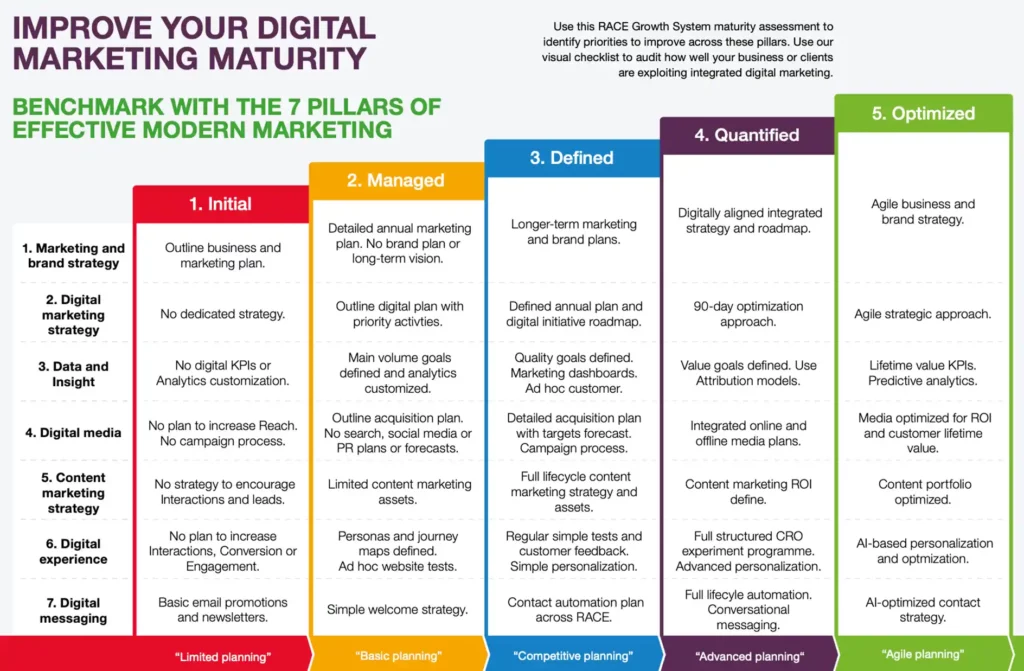
The different types of marketing technologies span 6 digital media channels, plus a range of paid media, owned media, and earned media options.
- Search engine marketing
- Social media marketing
- Digital advertising
- Digital PR
- Digital partnerships
- Digital messaging
- Pay-per-click PPC
- Paid social
- Programmatic display
- Online advertorial
- Affiliate marketing
- Publisher email/push
- Organic search (SEO)
- Organic social
- Native advertising
- Guest blogging
- Co-branding
- In-house email/push
- Backlinks
- Earned mentions
- Sponsorship
- Influencer outreach
- Co-marketing
- Partner emails
How Matrix Marketing Helps Businesses Scale Their Digital Marketing
Matrix Marketing Group uses a 360-degree strategic approach to analyze and understand various aspects of a business’s marketing initiatives to optimize and improve its digital marketing efforts.
By incorporating data-driven insights, adopting a comprehensive multi-channel approach, and focusing on customer-centric marketing, Matrix Marketing Group helps businesses scale their digital marketing, drive growth, and increase their return on investment (ROI).
This article will discuss the key components of Matrix Marketing Group and how it can help businesses scale their digital marketing efforts.
I. Data-Driven Decision Making
Matrix Marketing Group uses data to make informed marketing strategies and tactics decisions.
By collecting and analyzing data from multiple sources, businesses can identify trends, customer preferences, and areas for improvement, allowing them to make strategic adjustments to their digital marketing efforts.
Key benefits:
- A. Improved targeting and personalization
- B. Efficient allocation of resources
- C. Enhanced campaign performance and ROI
II. Comprehensive Multi-Channel Approach
Matrix Marketing Group emphasizes the importance of using a variety of digital marketing channels to reach a broader audience, engage customers, and drive conversions.
This holistic approach ensures that businesses can capitalize on the unique benefits of each channel while creating a seamless and consistent experience for their customers.
Key components:
- A. Content marketing
- B. Search engine optimization (SEO)
- C. Social media marketing
- D. Email marketing
- E. Paid advertising
III. Customer-Centric Marketing
A primary focus of Matrix Marketing Group is placing the customer at the center of all marketing efforts. By understanding the customer journey and tailoring marketing campaigns to their needs, businesses can improve engagement, build brand loyalty, and increase customer lifetime value.
Key strategies:
- A. Customer segmentation and targeting
- B. Personalization and dynamic content
- C. UX optimization and responsive design
- D. Customer feedback and continuous improvement
IV. Integration and Automation
Matrix Marketing Group encourages businesses to leverage the power of integration and automation to streamline their digital marketing efforts, reduce manual tasks, and improve overall efficiency.
By using marketing automation tools and integrating various marketing platforms, businesses can scale their digital marketing while maintaining high control and effectiveness.
Key benefits:
- A. Time and resource efficiency
- B. Improved lead nurturing and customer retention
- C. Enhanced campaign performance and tracking
V. Performance Measurement and Optimization
One of the core principles of matrix marketing is the continuous measurement and optimization of digital marketing efforts.
By tracking key performance indicators (KPIs) and analyzing campaign performance, businesses can identify areas of improvement and make data-driven adjustments to their strategies.
Key steps:
- A. Establishing KPIs and setting goals
- B. Monitoring campaign performance
- C. Analyzing data and identifying trends
- D. Iterative optimization and testing
Matrix marketing is a powerful approach that can help businesses scale their digital marketing by utilizing data-driven insights, adopting a comprehensive multi-channel strategy, and focusing on customer-centric marketing.
By implementing the principles of matrix marketing, businesses can improve their digital marketing efficiency, increase customer engagement, and drive sustainable growth.
Get a free SEO audit today and start scaling up your digital marketing plans for success now!
You can download the digital marketing scale pdf here.
General FAQs
What is digital marketing?

Digital marketing uses digital channels like search engines, social media, and email to reach potential customers and increase brand awareness. It involves creating and sharing content through various forms of online advertising to attract customers, drive engagement, and build relationships with them. Digital marketing strategies include paid ads, SEO optimization, content marketing, email campaigns, influencer outreach, and more.
How can I leverage data and analytics for my business’s success?

Utilizing sophisticated tools and techniques such as predictive modeling and real-time monitoring are key to leveraging data and analytics for your business’s success. These tools provide a wealth of information that can inform decision-making across the board so that you can make smarter decisions faster. Additionally, utilizing data-driven insights in combination with traditional market research methods helps you identify opportunities more accurately while staying ahead of the competition.
What steps should I take when developing a digital marketing strategy?

Setting clear objectives to measure success effectively when developing a digital marketing strategy. You should also develop a plan of action that includes multiple components such as content strategy, SEO optimization, social media presence building, email campaigns, etc., to scale up your efforts depending on your growth trajectory. Automation is also beneficial for streamlining processes efficiently while increasing engagement with potential customers.
How do I ensure success in my digital marketing campaigns?

The key to ensuring success in your digital marketing campaign lies in building an effective team and robust infrastructure that supports strategic decision-making processes efficiently while maintaining transparency in operations internally. Additionally, investing in the right tools for data analysis will allow you to extract maximum value from the data available to make informed decisions quickly which will help stay ahead of the competition in this fast-paced market landscape.

